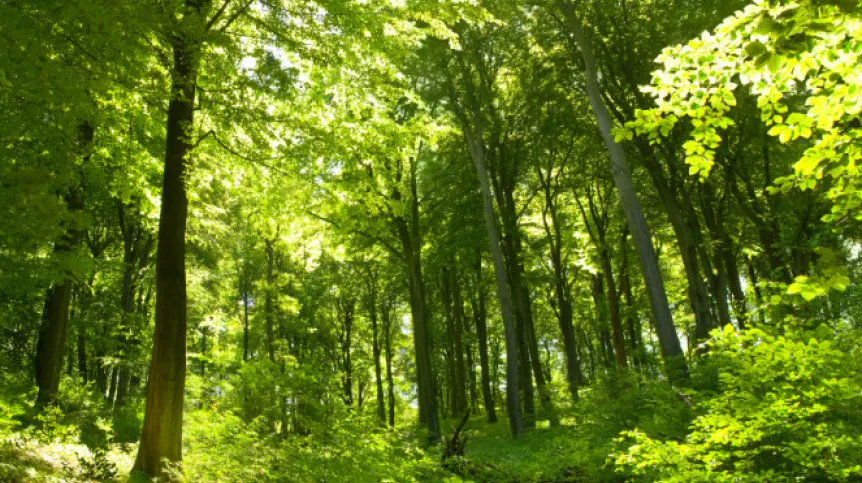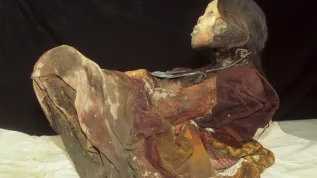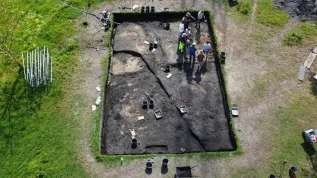
The first traces of human activity in the Białowieża Forest come from the Early Stone Age. But so far, archaeologists have devoted little time to explore this unique place on the Polish map. Research project carried out under the supervision of Prof. Przemysław Urbańczyk is expected to shed new light on the presence of people in the area.
"I suspect that this is the largest project of its kind in Europe. One of its objectives is to develop a research model for cultural heritage in forest areas. Forest has been studied, but at random: there are a lot of traces of human activity over several thousand years" - explained Prof. Urbańczyk in the release sent by the Cardinal Stefan Wyszyński University. The project will be implemented at the university\'s Institute of Archaeology.
The scientist added that since the 17th century the area had been almost virgin, because at first, as a hunting ground the forest was under the protection of the king, and then the tsar for the same reasons. Its operation began only in the 20th century.
Funds for the project "Cultural and natural heritage of the Białowieża Forest", headed by Prof. Przemysław Urbańczyk, come from a grant awarded in the competition Symphony 4 of the National Science Centre. According to the researchers, in the project the entire Polish part of the forest, which is approx. 600 km sq, will be "combed". The project will involve not only archaeologists - in total more than 30 scientists will participate, representing different fields of knowledge.
The project will start in January 2017 and is scheduled for three years. As a result, the researchers plan to prepare a comprehensive collection of information on natural and cultural resources associated with the past human activity throughout the Polish Białowieża Forest complex.
According to the release sent by in the Cardinal Stefan Wyszyński University spokeswoman Anna Pawlak, until now the study of forest areas for the former human activity was unpopular because of the dense vegetation and the lack of possibility of obtaining relics from surface surveys.
"Today, however, a new, non-invasive tool called ALS (Airborne Laser Scanning) allows to reject of the theory of +settlement void+ of forest areas. This is confirmed by the results of previous excavations, surveys and observations of all the places where the forest floor has been disturbed (...)" - reads the release.
During the project, researchers will also use other non-invasive methods, including geophysical methods and drilling, as well as surveys. The obtained data will be supplemented by information from the GIS (Geographic Information System), geomorphology of the area, archival and source query regarding the history of research and the history of the Białowieża Forest.
Studying the history of man in forest areas it is closely linked to the discovery and reconstruction of the natural environment, so the project will also involve representatives of the natural sciences.
PAP - Science and Scholarship in Poland
szz/ agt/ mrt/
tr. RL













